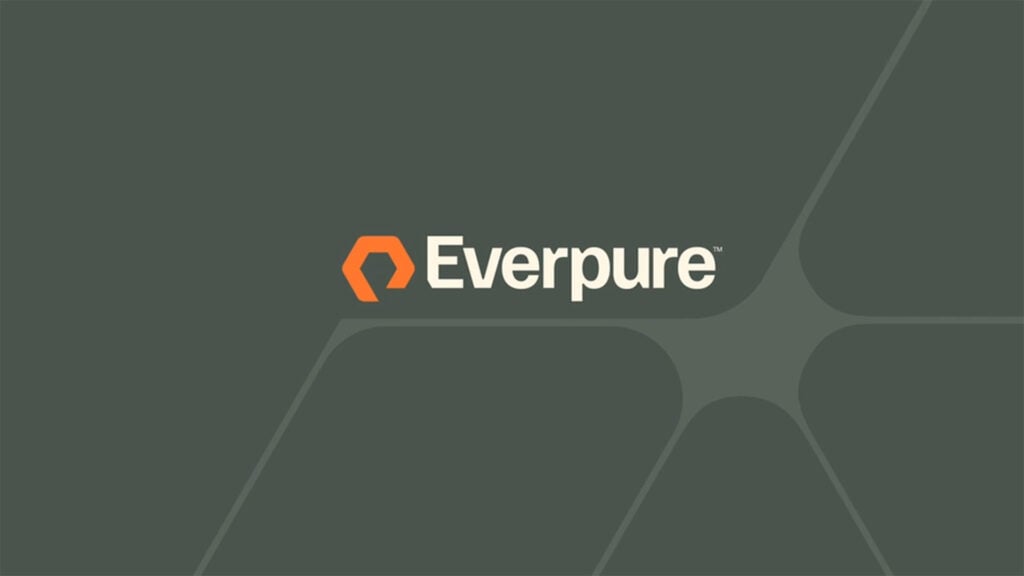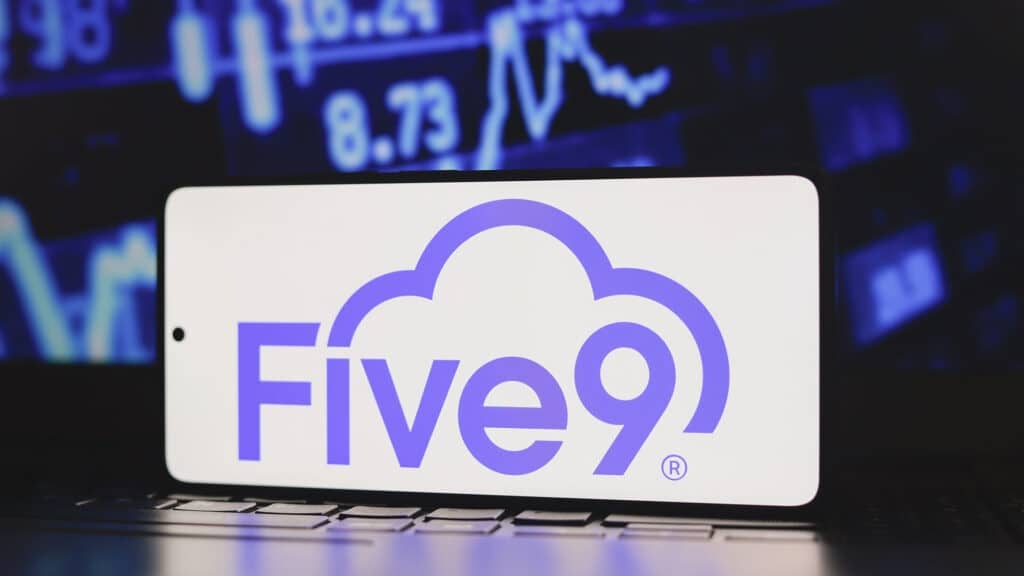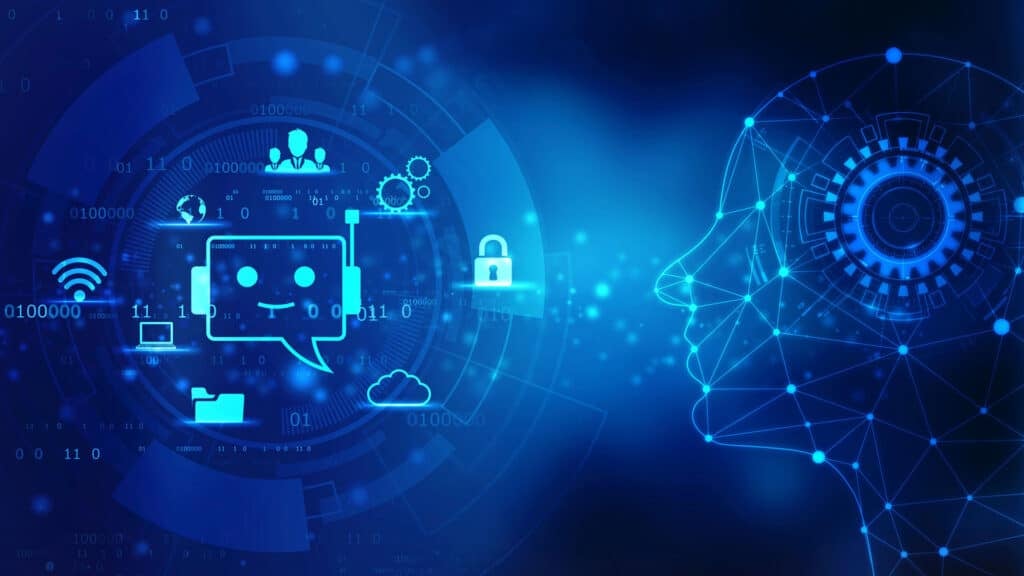What if your company could create customer experiences that weren’t just reactive, but could actually anticipate and adapt in real-time?
At Cisco Live 2025, hosts Daniel Newman and Patrick Moorhead are joined by Liz Centoni, EVP & Chief Customer Experience Officer at Cisco for a conversation on redefining customer experience (CX) through the application of Agentic AI. Discover how they’re crafting a CX model that’s not only smarter and more adaptive but also predictive and self-managing, all designed to meet the ever-evolving demands of today’s customers.
Key takeaways include:
🔹The Evolution of Cisco CX: Liz will share exclusive insights into the significant strides her organization has made over the past year, with a sharp focus on seamlessly integrating Agentic AI to elevate the customer experience.
🔹Navigating Customer Challenges: The discussion will pivot to the pressing challenges and shifts that Cisco’s customers are currently facing. Learn how Cisco CX is strategically addressing these evolving needs head-on.
🔹The Agentic AI Imperative: Liz shares Cisco research that signals a monumental shift toward Agentic AI in customer experience management, with findings showing that many expect AI to handle CX interactions within the next year.
🔹The Enduring Human Element: Even as AI takes center stage, the conversation powerfully underscores the irreplaceable value of human connections. Discover why a remarkable 96% of respondents continue to highly value human relationships in B2B technology partnerships.
Learn more at Cisco.
Watch the full video at Six Five Media, and be sure to subscribe to our YouTube channel, so you never miss an episode.
Or listen to the audio here:
Disclaimer: Six Five On The Road is for information and entertainment purposes only. Over the course of this webcast, we may talk about companies that are publicly traded, and we may even reference that fact and their equity share price, but please do not take anything that we say as a recommendation about what you should do with your investment dollars. We are not investment advisors, and we ask that you do not treat us as such.
Transcript:
Patrick Moorhead: The Six Five is On The Road here in San Diego for Cisco Live 2025. Daniel, it’s been a great event. It’s been pretty much about AI, agentic AI, and how networking, security, safety and observability come together to make great things happen for customers.
Daniel Newman: Yeah, it’s been a big year for Cisco. You and I have chronicled the journey quite a bit, and a year ago we were asking a lot of questions about the company. You know, where are they at with AI? What is the story, how does it evolve? And over the past couple of quarters, we’ve seen a lot of it. Their AI summit with the launch of AI Defense, that was a big moment. And I think here at Live was really an opportunity to sort of cement the company’s strategy, which is what I saw. And you start to see, you know, the market is responding.. You know, you’re seeing the share prices rise, which, you know, has been kind of stagnant for a period of time, and all of a sudden you’re really getting that rise. And really, I think what Cisco showed us over the course of this week is that it is here in this generation, in the AI era, to play the same way it did in the Internet era.
Patrick Moorhead: Yeah, that’s right. And Cisco as a company has diversified so much a lot of the times to pull all that together and have a contiguous experience for end customers, whether it’s on the network side and the multiple ways that that can be consumed on the security side, the safety side, the observability side, custom is becoming even more important. And doing that in the age of agentic AI has some opportunities there. And I can’t imagine a better person to talk about it other than Liz Centoni, who runs the CX group here at Cisco. Welcome.
Liz Centoni: Thanks for having me. This is my first time with Six five, so I’m excited.
Daniel Newman: Yeah.
Patrick Moorhead: It’s great to see you. Thank you. Thank you. You’ve had a great career at Cisco that we talked a lot when you were running strategy, and I appreciated all of our interactions then, so thank you.
Liz Centoni: Yeah, I’ve run a few businesses at Cisco, so been here for 25 years.
Patrick Moorhead: Yeah, it’s amazing.
Daniel Newman: Yeah. Well, you know, just to your point, though, it’s been so acquisitive that, you know, having that kind of CX layer in a company that’s built itself both organically and inorganically this way, and being able to tie and thread all this together and then build for the AI era. So let’s start there. You know, Liz, first of all it’s great to have you. You’ve been here about a year in this role, right? Talk a little bit about what you’re thinking about the Org and what it is really focused on because this is a really important role but it’s not a role that necessarily exists in every company. It’s something that Cisco seems to be really focused on building around.
Liz Centoni: Yeah, CX means different things to different companies. So maybe I’ll start with what it means for Cisco. So my team is about 21,000 people and we do professional services. So the deploy part of IT adoption. So customer success. I have a renewals team that covers all of Cisco renewals, not just services and then a customer support team as well. I think when I think about CX’s role it’s very simple. It is. We take the innovations that the product team builds and we bring that to life in our customers’ environment. So think about it as a glue that makes it kind of come to life. If I could simplify it and then help our customers through their entire life cycle. Because the life cycle is not just, it doesn’t just start and end with design, build and ship it. It’s where we help a customer adopt, deploy in their environment, adopt it, help them renew it and then help them support it through the life cycle. That’s what CX does.
Patrick Moorhead: That’s great. I mean you and your team are probably in front of customers as much as even the sales team. And my guess is that you hear a lot about some of their key challenges, particularly with enterprise AI. I mean it’s a big opportunity but there’s a lot of challenges. What are they telling you right now about the challenges that they’re facing?
Liz Centoni: Yeah, a lot of the challenges are the same things that you Patrick have probably heard for like so many years. It’s about keeping my environment highly resilient and reliable, help us adopt the technology so it’s faster to value so we can move on to actually again its revenue generation, customer experience and simplify it. Because things have gotten so complex, how do we make it less complicated? None of these are really new but with AI their expectations have gone from here all the way here because they’re like break fix in support it’s no longer acceptable. I want to be predictive and proactive. So the majority of the time you need to know me so well that you tell me ahead of time how to optimize the environment so I don’t have outages for example and they’re expecting by the time I purchase Something to when I get value out of it, close that gap for me. And so for us, when I think about AI and CX, I don’t need to look very far. These are things that we’ve been hearing from customers for like 10, 20, 30 years. That agentic AI now gives us the ability to really go after it and solve it. Not just incremental fixes.
Patrick Moorhead: Makes sense.
Daniel Newman: It’s really interesting that you say that, you know, thinking back to some of the research we did over the years about, you know, customer experience and engagement and, you know, AI has kind of brought this all back to life a little bit, Liz. But we had this period of time where, you know, consumerization, because you’re a big B2B business, but the experiences that we have, whether it’s on an Amazon or, you know, when we’re buying stuff online and we’ve gotten so used to kind of that immediacy and the, you know, the instant response time, being able to get updates. And then in B2B it was always like, why does it fall off? Because, Well, I mean, obviously there’s a lot of reasons, but in the AI era, can I get instant information on an RMA when I’m returning something? Can I understand exactly where my product is when it’s in flight? Like things like that, like AI is making it so powerful, but you have this kind of balance too of augmenting humans and technology and machines. And you actually did some research that was really interesting. And by the way, you had a great session. Thanks for doing the Q and A. And you know, I think you had a number. I’m trying to go by memory, like 68% of interactions in 26, in 2026, see if my memory is going to be done with agentic AI. I think that was the number. What do you sort of think about that? Because that’s going to reshape your org. It’s going to reshape the way you interact with customers. It’s going to reshape the work that people do. I mean, this research is really, really exciting.
Liz Centoni: So just a little slight tweak. They said 56% said that they expect that all our interactions with the customer experience will be handled by Agentic. 68% said in three years. So almost there. Close enough.
Daniel Newman: Really? By the way, it’s not on this screen. I literally was trying to do that for a while.
Liz Centoni: That’s awesome. That surprised me, the extent to which customers expected that because 93% of them said that they believe that with the ability to do Gentec, they want more of their partners and vendors to deliver proactive predictive capabilities. And so I think the, I expected, you know, the shift. I didn’t expect this much of kind of almost like a complete change with customer expectations that have kind of gone through the roof in terms of. Because they’re looking at it and going, you have all my data. You’ve known me for how many years? Four plus years. You should be able to do it. You should be able to know me better than I know myself.
Daniel Newman: It’s all about that kind of next best action too. It’s like the tools have been there. Our social tools kind of read us. I don’t know what the ads are that show up in yours, but I keep getting the ads for the peptides we’re really into Healthcare Journey. So what I’m saying is when I’m on Facebook, it knows what I talk about all the time and it can read me. But sometimes in work it’s like, why don’t you know that this is what I need? And it sounds like people are expecting you to build it. Mm. And I mean, I don’t know. But in a year, I mean they’re literally a year from now, Liz, they want this to be built.
Liz Centoni: I’m not that anxious about it because we’re already, it’s already underway for us. So if I look at support today, our AI assistant is. I mean, we’ve digitized our knowledge base and best practices. So our AI assistant sits, you know, our engineers actually use it and it recommends the next best action. So what that means is that we’re able to close especially some very complex issues in a pretty short amount of time compared to how we did that before. But that to me is just becoming table stakes. It’s like the expectations are like, that’s great. But most of what I want you to do is like, I want you to give me like a crystal ball tool, like, what should I do in my environment such that I can reduce the number of outages? It will never get to the point where it’s zero outages, but if I can reduce it dramatically, I think that would be awesome. That’s where we think of Agentic Systems, it’s analyzing all this historical data that we have. We get real time telemetry from our customers. We know what the interaction patterns are, we know what the dependency is across the stack. We should be able to do that. By the way, with RMA, we do predictive RMA. Now with the data that we have, we can actually ship components or a full system to the customer when we see the degradation in either a component or a full system.
Patrick Moorhead: Yeah, you know, when I see figures on those expectations changing so much. I’ve been in tech, I guess 35 years this month, and I’ve probably done a thousand or been involved in 1,000 research projects with consumers and business users. And the first question I always ask is, gosh, do we ask the right question? Yes. Do they actually know what they’re responding to? It’s almost like knowing your customers more than they do on how they respond. But I do believe that this one is real because they’ve used ChatGPT and they’re trying to put themselves in this B2B zone of how they would expect. So, Liz, is Cisco ready for this, to meet that demand? I mean, I saw some great demos on stage and things like that, but is Cisco ready in a year to be able to do this or are you here now?
Liz Centoni: We’re here now and I would say the expectations keep increasing because I do think that we’re just beginning to feel out what agentic systems can do for us. Like when you think about, you know, I want instant response and by the way, I don’t want to talk to a human. So our attack assistant today is used by 250,000 unique users. It’s like self service. I want to be able to address it. With the way that we’ve used AI and automation, our lower severity cases have fallen down by at least about 25%. Our high severity has gone down by 10%. We expect that to grow because with more predictive and proactive, that’s fewer cases. And with the work that we’re doing with customers, especially with the next best recommended action, how do we reduce the time in terms of any issue that we’re addressing in real time? So I don’t think we have an option here. In fact, right after my engineering leader, he said, hey, great way to showcase everything the team’s doing. And I said, by the way, there’s a lot of things in the roadmap that we still need. And he goes, it’s been an hour since you told me that. So I think the expectations are just a lot.
Patrick Moorhead: Yeah, aligning the expectations between the customer and development group and the organization as a whole. And when they get that positive feedback, it’s got to be a motivator for your team that yes, we are on the right track here.
Daniel Newman: So you mentioned people just want to talk to a machine. I mean, you kind of alluded to that just there. I mean, there’s definitely this continuum of intro to extroversion, the way people want their customer support. There are people that want to walk up to a desk. There’s still people that walk into banks and they still want to deposit their checks. That does exist every day. I think there’s less of them. But then there are kinds of these great tools and then there’s always kind of the line of where the tool is no longer quite capable of giving me the level. So a large part of the respondents that you know, in this survey that we looked at basically said that humans are still very important. And I would argue in B2B. So you go back to what I said earlier about B2C and the great consumerization experiences, some of that carries over. But in B2B, you’re talking about, you know, multimillion dollar systems that are being deployed. You’re talking about entire enterprises that are dependent on it to run. And when something goes down, maybe an agent isn’t always enough. Can I talk about how you’re thinking about that balance? Because it’s got to be really important right now.
Liz Centoni: I always want to give our customers optionality. They feel like, hey, I can use an assistant and solve this. I’m good with that if I need a human. Our humans are there as well. So we look at agents as augmenting, not replacing by any means. Even some of the agents that we’re building right now are actually making some of the tasks more autonomous, but not a role for us. The humans will always be in the loop and on the loop as well, because it’s this balance of human and machine that’s a little bit of art and science together. The machine can munch through massive amounts of data. Think about looking at all the best practices more than a human can actually think during that time and say, what’s the next best action? But there’s 40 years of human intelligence that we have with our teams and then some of the models, I mean, as much as reasoning has gotten better, it’s still not as great as what some of our humans can do. And then the empathy. I don’t think we were able to digitize empathy and that emotional intelligence. So the way I look at it is we’re going to leverage like our WebEx voice agent, for example. And the voice agent has gotten so good that it doesn’t sound kludgy like a bottle does. But on the other hand, it also can recognize emotion. So even if a customer is calling for something that’s really simple, but it can sense the emotion, it will actually deflect that to a human. So our goal is to be able to meet customers where they are, but make sure that the human’s always in the loop and are vetting and validating the decisions of the machines. Now, we know that we’re continuing to improve our models with all the capabilities and reinforcement learning and everything, but humans will always be in the loop. And what we think is that Cisco’s customers trust us. We can’t afford to lose that trust. So I don’t see, at least in the near future, where it’ll just be the machine, it’ll be human and the machine.
Daniel Newman: Well, you know that Pat and I have been really aggressively trying to figure out how to create the Pat and Dan bots so that we can do these pods and hopefully the Lisbot can join us at some point in the future. Not because we don’t love seeing you having that human experience. We just need to be able to do more things at one time. But no, that’s exactly the point. It’s all about augmenting. It’s all about adding. I think it’s going to be interesting to kind of see how it all plays out, Liz, but I think companies that kind of make sure they keep that empathy, at the same time figuring out how to very, very rapidly accelerate with technology will be the ones that do the best. So I want to thank you so much for joining us here on the Six Five. Congratulations on a big Cisco Live and all the big payload that you have been saying all week. Let’s have you back sometime soon.
Liz Centoni: I would love to thank you both.
Patrick Moorhead: Thank you.
Daniel Newman: And thank you everybody for joining us here. We’re at Cisco Live 2025 in beautiful San Diego, California. Check out all of our other coverage here from the event. Subscribe and be part of our community. But for this show, for this episode, it’s time. Time to say goodbye. See you all later.
Author Information
Daniel is the CEO of The Futurum Group. Living his life at the intersection of people and technology, Daniel works with the world’s largest technology brands exploring Digital Transformation and how it is influencing the enterprise.
From the leading edge of AI to global technology policy, Daniel makes the connections between business, people and tech that are required for companies to benefit most from their technology investments. Daniel is a top 5 globally ranked industry analyst and his ideas are regularly cited or shared in television appearances by CNBC, Bloomberg, Wall Street Journal and hundreds of other sites around the world.
A 7x Best-Selling Author including his most recent book “Human/Machine.” Daniel is also a Forbes and MarketWatch (Dow Jones) contributor.
An MBA and Former Graduate Adjunct Faculty, Daniel is an Austin Texas transplant after 40 years in Chicago. His speaking takes him around the world each year as he shares his vision of the role technology will play in our future.












